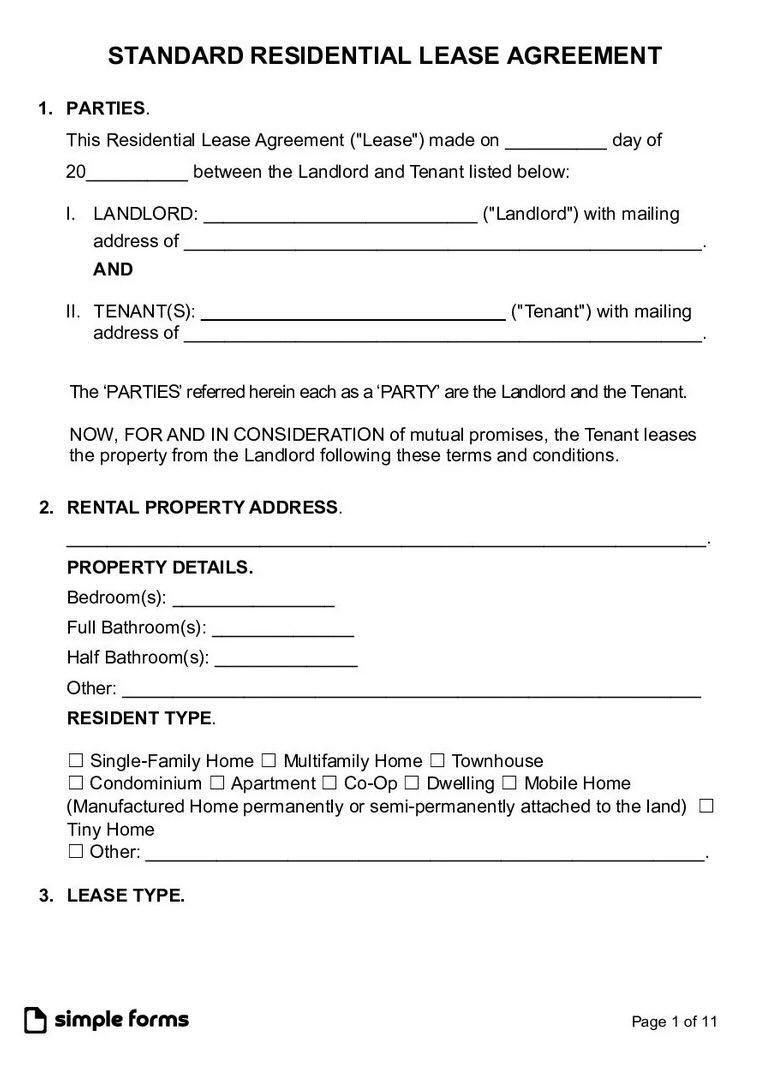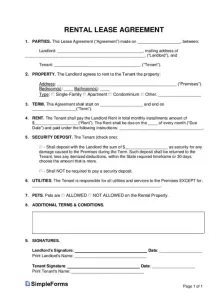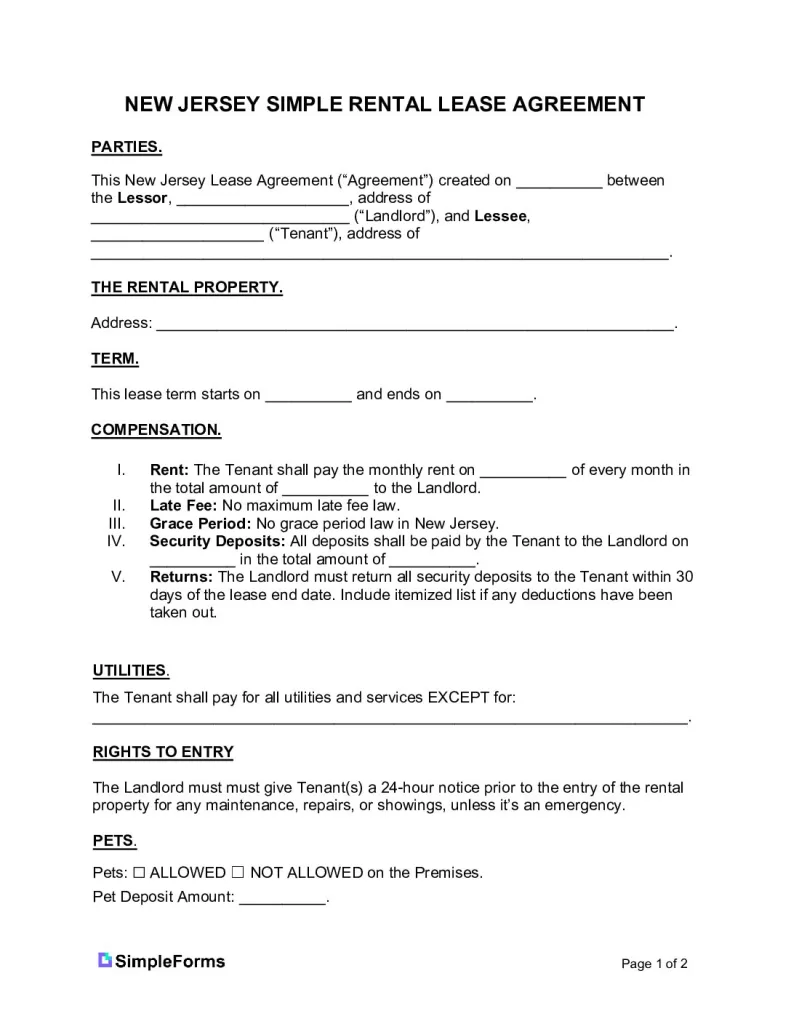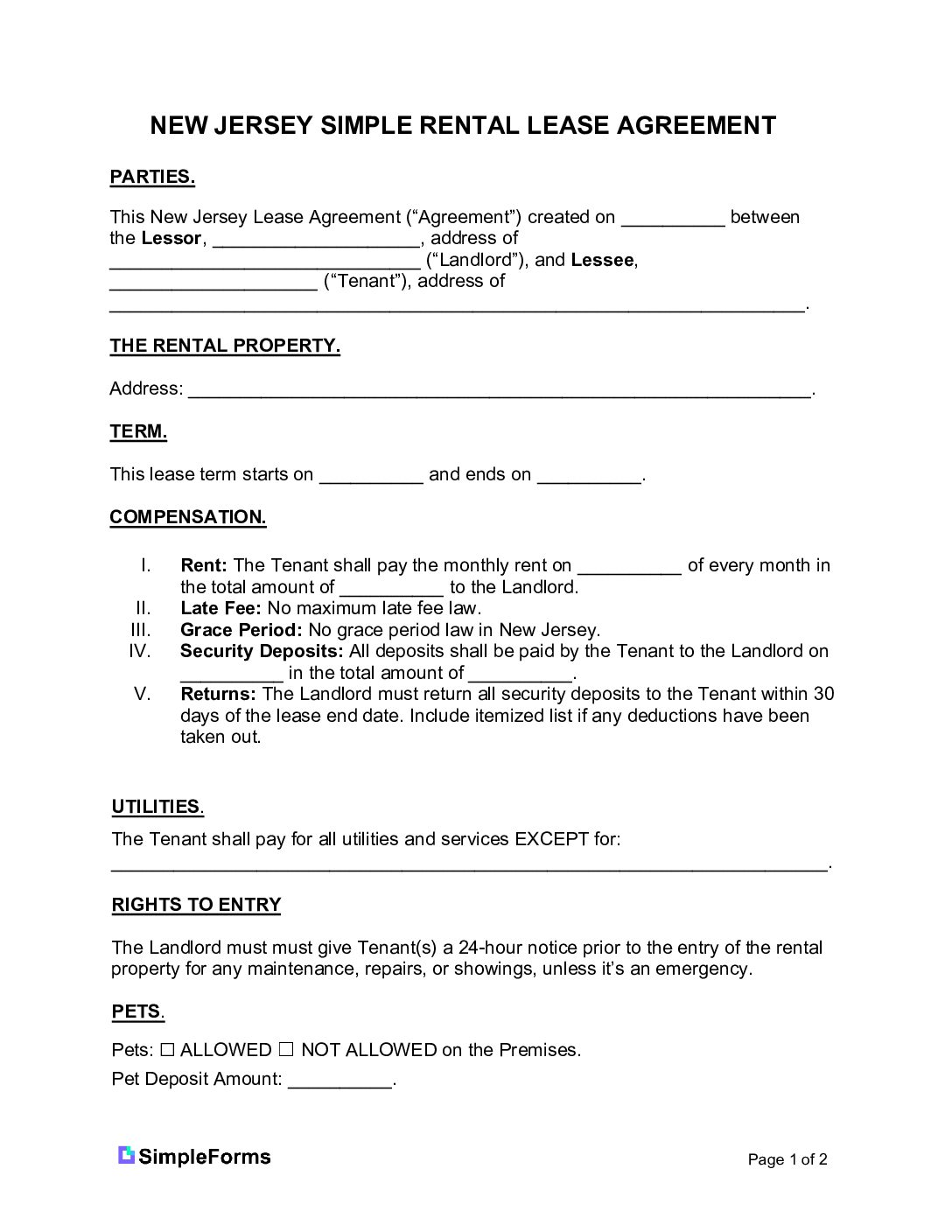A New Jersey lease agreement is used when Landlords rent out property to Tenants in exchange for rental payments. This form is legally binding.
Options By Type
 Standard Residential Lease Agreement Standard Residential Lease Agreement
Download: PDF |
 Simple (1-Page) Lease Agreement Simple (1-Page) Lease Agreement
Download: PDF |
Most Recent US Home Facts
- Population (2023): 334,914,895
- Median Households (2022): 125,736,353
- Median Household Income (2022): $75,149
- Owner-occupied Households (2022): 64.8%
Source: U.S. Census Bureau
New Jersey Lease Agreements Must Include the Following
Required Disclosures (4)
- Lead-Based Paint Disclosure Form
- Flood Zone Disclosure Form
- Truth in Renting Act Disclosure Form
- Window Guard Disclosure Form
Source: § 46:8-50(a)
Security Deposit
Maximum Amount – The maximum amount Landlords can request from Tenants equals to 1 and 1/2 months’ rent for the first year and 10% of the current security deposit the following years.
Returning to Tenant – Landlords must return all deposits within 30 days of the lease end date. An itemized list is required if any deductions are taken out of the deposits by the Landlord.
Source: § 46:8-21.2
Landlord Access
General Access – Landlords must give Tenants 24-hours notice prior to entering the rental property.
Emergency Access – Landlords can access the rental units in an emergency and do not need to give Tenants any notice.
Source: § 5:10-5.1(c)
Paying Rent
Grace Period – No grace periods in the state of New Jersey except for senior citizens are granted a 5-day grace period.
Maximum Late Fee – Landlords can charge any amount for late rent as there are no laws governing late fees in New Jersey.
Source: § 2A:42-6.1

